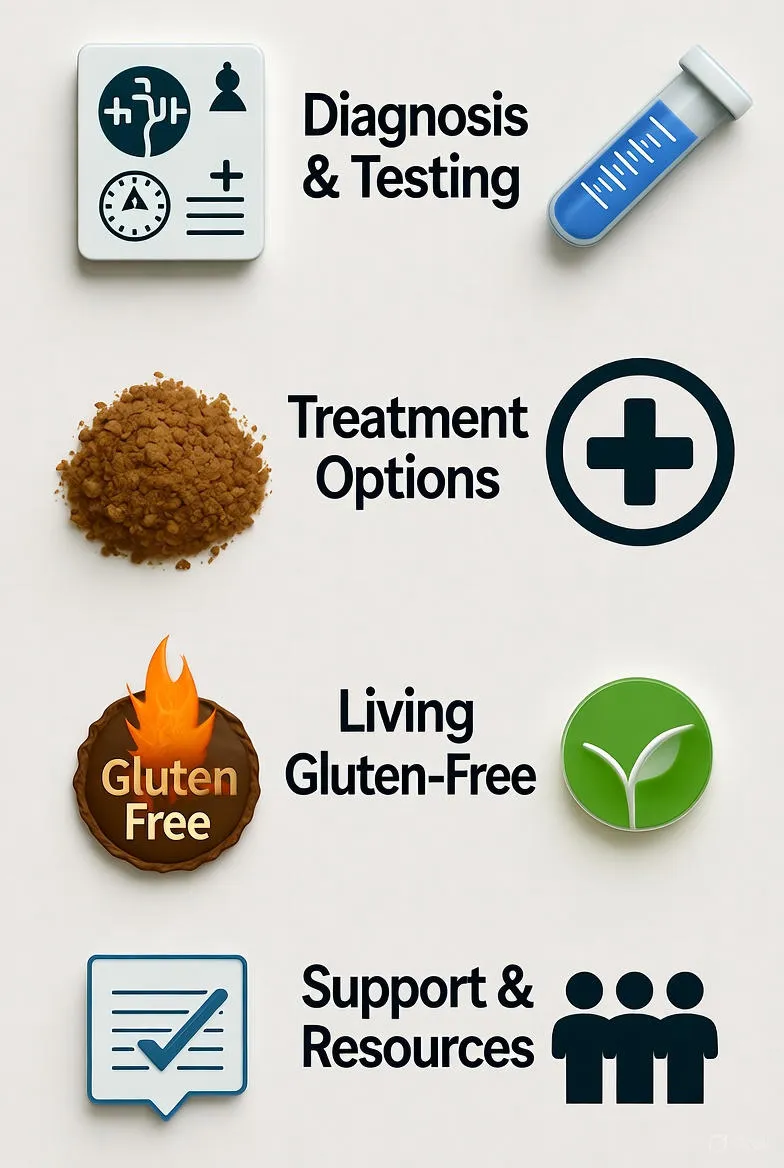The Hidden Link Between Gluten and Mental Health: Understanding the Mind-Gut Connection
Discover how gluten may affect mental health through inflammation, gut-brain communication, and neurotransmitter balance. Learn how a gluten-free diet could support emotional and cognitive well-being.

For years, gluten has been at the center of dietary debates, often linked to digestive issues and autoimmune conditions like celiac disease. However, an emerging body of research suggests that gluten may also play a significant role in mental health. The relationship between gluten consumption and mental well-being is complex, involving the gut-brain axis, inflammation, and immune system responses. This article explores how gluten affects the mind, why some individuals experience psychological symptoms, and what steps can be taken to promote better mental and emotional balance.
What Is Gluten?
Gluten is a protein found in wheat, barley, and rye. It gives dough its elasticity and helps bread maintain its shape. While most people can tolerate gluten without any issues, others experience adverse reactions. For individuals with celiac disease, gluten triggers an autoimmune response that damages the small intestine. However, even people without celiac disease can be sensitive to gluten, leading to a condition known as non-celiac gluten sensitivity (NCGS).
The Gut-Brain Axis: A Two-Way Communication System
The human body maintains a constant dialogue between the gut and the brain through what scientists call the gut-brain axis. This intricate system involves neural, hormonal, and immune pathways. When the gut experiences inflammation or distress—often triggered by food sensitivities such as gluten—it can send negative signals to the brain. This communication can manifest as mood changes, anxiety, brain fog, or even depression.
How Gluten Affects Mental Health
There are several mechanisms by which gluten may influence mental health:
- Inflammation: Gluten sensitivity can trigger chronic inflammation in the body, releasing cytokines that impact brain function. Inflammation is a known contributor to conditions like depression and anxiety.
- Leaky Gut Syndrome: Gluten can increase intestinal permeability in susceptible individuals, allowing toxins and partially digested food particles to enter the bloodstream. This condition, known as a 'leaky gut,' can provoke immune reactions that affect the nervous system.
- Autoimmune Responses: In celiac disease, the immune system mistakenly attacks the body’s own tissues. These autoimmune responses can also affect the brain, leading to neurological symptoms.
- Nutrient Deficiencies: Chronic gluten-induced inflammation can reduce nutrient absorption, leading to deficiencies in vitamins such as B12, folate, and iron—nutrients essential for brain health.
Common Psychological Symptoms Linked to Gluten Sensitivity
People with gluten intolerance or celiac disease often report a variety of mental and emotional symptoms, including:
- Brain fog: Difficulty concentrating, forgetfulness, and mental fatigue are among the most commonly reported issues.
- Anxiety and Depression: Many individuals experience mood disturbances that improve after adopting a gluten-free diet.
- Irritability and Mood Swings: Emotional instability can occur due to the body’s stress response to inflammation.
- Sleep Disturbances: Gluten-related inflammation can affect neurotransmitter balance, leading to insomnia or poor sleep quality.
Scientific Evidence Supporting the Gluten-Mental Health Connection
Recent studies have strengthened the hypothesis that gluten can influence mental health. Research from institutions such as Harvard Medical School and Columbia University has found that individuals with celiac disease or gluten sensitivity are more likely to experience depression, anxiety, and cognitive impairments. In a 2018 study published in the journal Alimentary Pharmacology & Therapeutics, participants who followed a strict gluten-free diet reported significant improvements in their psychological well-being.
Gluten and Schizophrenia: A Historical Perspective
The connection between gluten and schizophrenia dates back to the 1950s when researchers observed that patients improved when placed on gluten-free diets. While not everyone with schizophrenia is sensitive to gluten, some studies indicate that removing gluten can reduce symptom severity in certain individuals. This suggests that gluten may trigger or exacerbate psychiatric symptoms in genetically predisposed people.
Understanding Gluten Sensitivity Without Celiac Disease
Non-celiac gluten sensitivity (NCGS) refers to individuals who experience symptoms related to gluten intake but test negative for celiac disease. For these individuals, gluten can still provoke inflammatory and neurological responses. Although NCGS is not fully understood, it highlights how gluten can affect mental health even without visible intestinal damage.
Neurotransmitters and the Role of Serotonin
The gut produces up to 90% of the body’s serotonin—a neurotransmitter that regulates mood, sleep, and appetite. Gluten-induced gut inflammation can disrupt serotonin production, potentially leading to depression or anxiety. When the gut microbiota (the population of beneficial bacteria in the digestive system) is disturbed by gluten, serotonin levels may drop, negatively impacting mood and emotional regulation.
The Benefits of a Gluten-Free Diet for Mental Health
Many individuals who eliminate gluten from their diets report mental clarity, improved mood, and reduced anxiety. Here are some potential benefits:
- Enhanced Cognitive Function: Clearer thinking and better focus often follow the removal of gluten.
- Stabilized Mood: Balanced neurotransmitter production and reduced inflammation contribute to more consistent emotional states.
- Improved Sleep: With less inflammation and better gut health, sleep quality tends to improve.
How to Test for Gluten Sensitivity
If you suspect gluten might be affecting your mental health, consult a healthcare professional for proper testing. Common diagnostic approaches include:
- Celiac blood tests: These measure antibodies like anti-tTG and anti-EMA that indicate autoimmune responses to gluten.
- Elimination diet: Removing gluten for several weeks and reintroducing it gradually can help identify sensitivity.
- Genetic testing: Identifying genes such as HLA-DQ2 and HLA-DQ8 can help determine susceptibility to gluten-related disorders.
Supporting Mental Health Through Nutrition
Transitioning to a gluten-free diet can improve both physical and psychological well-being, but it’s essential to replace lost nutrients through a balanced diet rich in fruits, vegetables, lean proteins, and gluten-free whole grains like quinoa or brown rice. Supplementing with B vitamins, magnesium, and omega-3 fatty acids can further support brain function and emotional stability.
Final Thoughts
The impact of gluten on mental health is an evolving field of research that bridges nutrition, neurology, and psychology. For some, gluten may be an invisible factor contributing to anxiety, depression, or cognitive fog. While not everyone needs to avoid gluten, individuals with unexplained mental or emotional symptoms might benefit from exploring how their diet influences their mind. The key lies in listening to the body, working with medical professionals, and making informed dietary choices that promote both gut and brain harmony.
Disclaimer
This article is for informational purposes only and should not replace professional medical advice. Always consult a qualified healthcare provider before making significant dietary changes.


